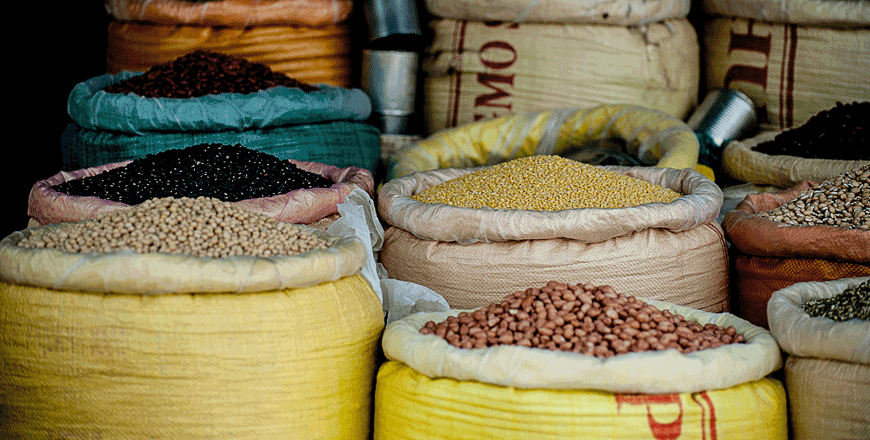By Maria Weldali – Feb 11,2023

Representative image. Observed annually on February 10, World Pulses Day highlights the ways in which pulses increase farmers’ resilience to climate change and further the 2030 Agenda for Sustainable Development (Photo courtesy of unsplash)
AMMAN — On World Pulses Day, Jordanian farmers are underlining the importance of pulses, also known as legumes, in improving soil fertility and agricultural sustainability.
Observed annually on February 10, World Pulses Day highlights the ways in which pulses increase farmers’ resilience to climate change and further the 2030 Agenda for Sustainable Development.
This year, the day was celebrated under the theme “Pulses for a Sustainable Future” to shed light on how pulses contribute to food security, according to the UN Food and Agriculture Organisation’s (FAO) website.
According to the FAO, pulses can help mitigate the effects of climate change by increasing the soil’s ability to store carbon. The plant also has the ability to restore degraded soil.
“The nitrogen-fixing properties of pulses improve soil fertility, increasing and extending the productivity of the farmland,” the FAO website said.
“Pulses are vital crops for farmers as they reduce dependency on chemical fertilisers, are easy to grow and require little water,” said Jordanian farmer Nawash Al Yazjeen.
In Jordan, lentils, chickpeas and beans are the most-well known and commonly produced varieties, Yazjeen said.
“Pulses do not consume much water, which means they have a relatively low water footprint,” Khalil Abdullah, a farmer based in the Jordan Valley, told The Jordan Times.
As of today, a significant number of Jordania
https://jordantimes.com/news/local/world-pulses-day-highlights-climate-change-fighting-power-legumes
